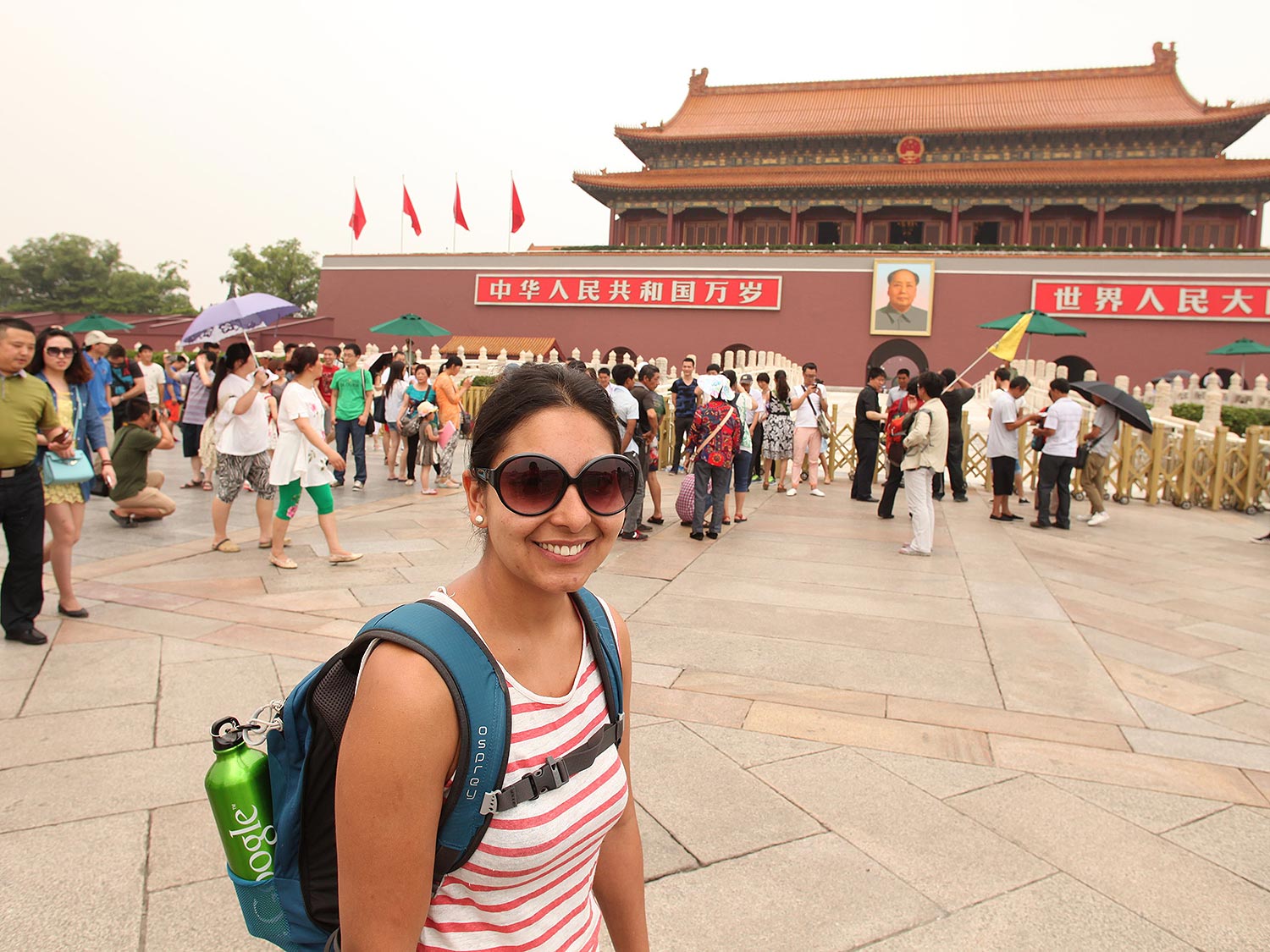Beijing: Rou Jia Bing, Beijing Yogurt, and Liangpi: You Want to Eat These
21 Jun 2014Location: Beijing, China
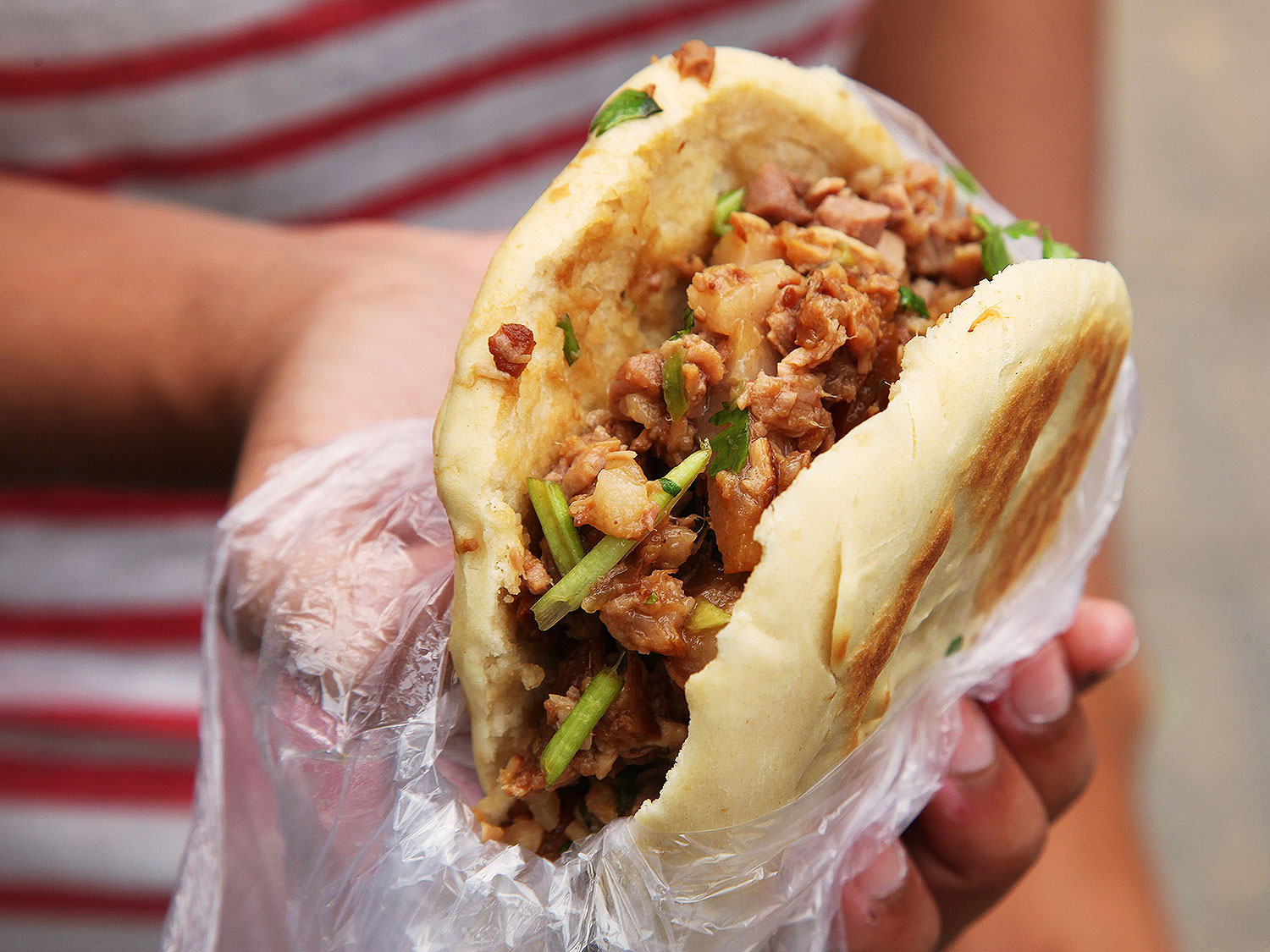
We ate a sandwich for breakfast this morning, and it was good.
Adri and I did our standard "let's walk down the street and stop when something looks good to eat" routine after leaving the hostel on our way to Tiananmen square. Turns out that sleeping in until 10AM is not a good idea if you're going to wake up hungry. The Chinese take their meals early, which means that if you peer into most restaurants at 10AM, all you see is stacks of empty bamboo steamers that once housed delicious dumplings. It's good incentive to get up early.
What you can find is these:
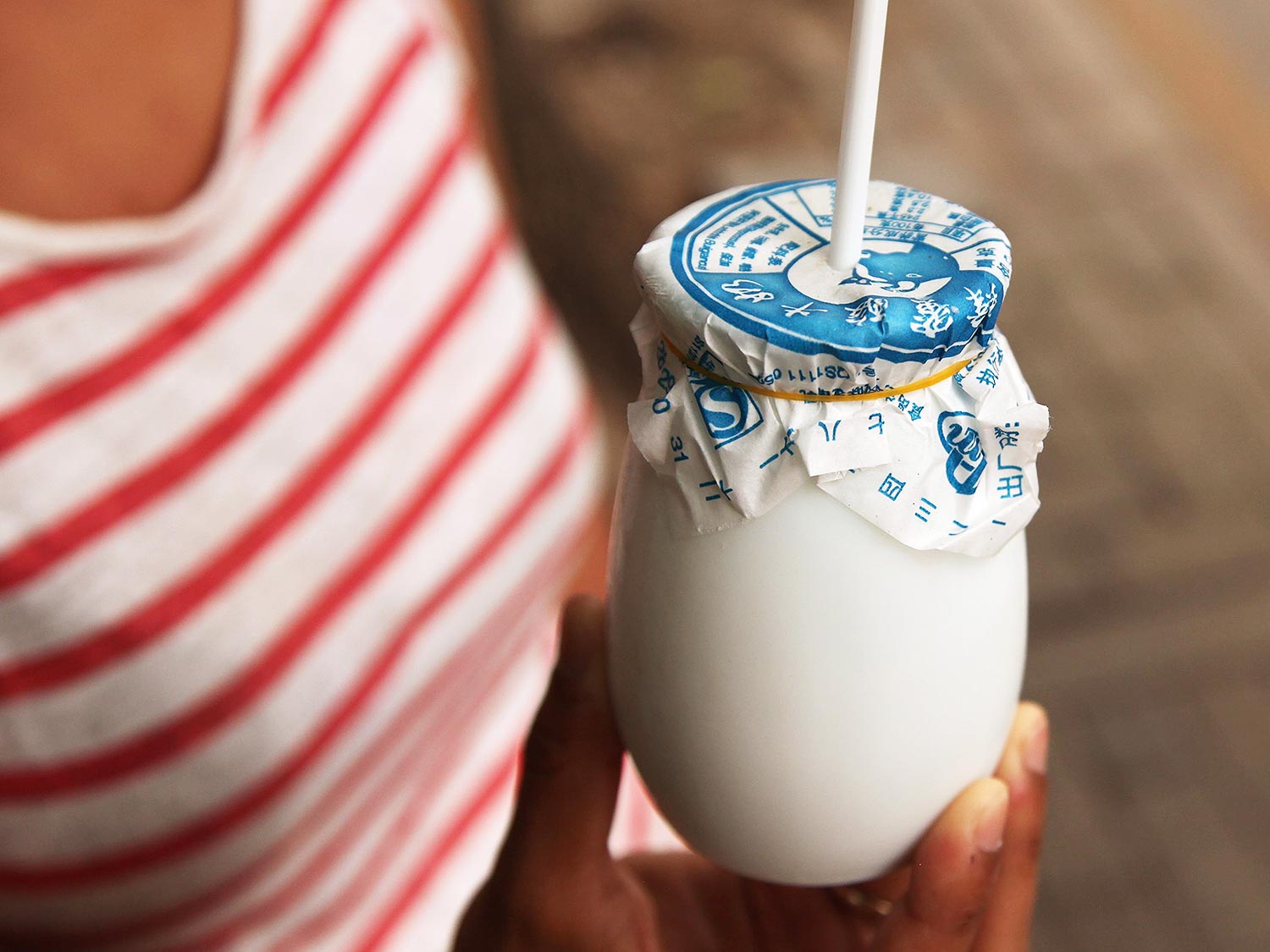
Adri made the good point that while I've been gifted with a huge appetite, a boundless love of adventure, and a moderate ability to string words together—all hallmarks of a decent food writer—what I lack is the guts. And she meant that literally. Occasionally my mouth writes checks that my intestines just can't cash.
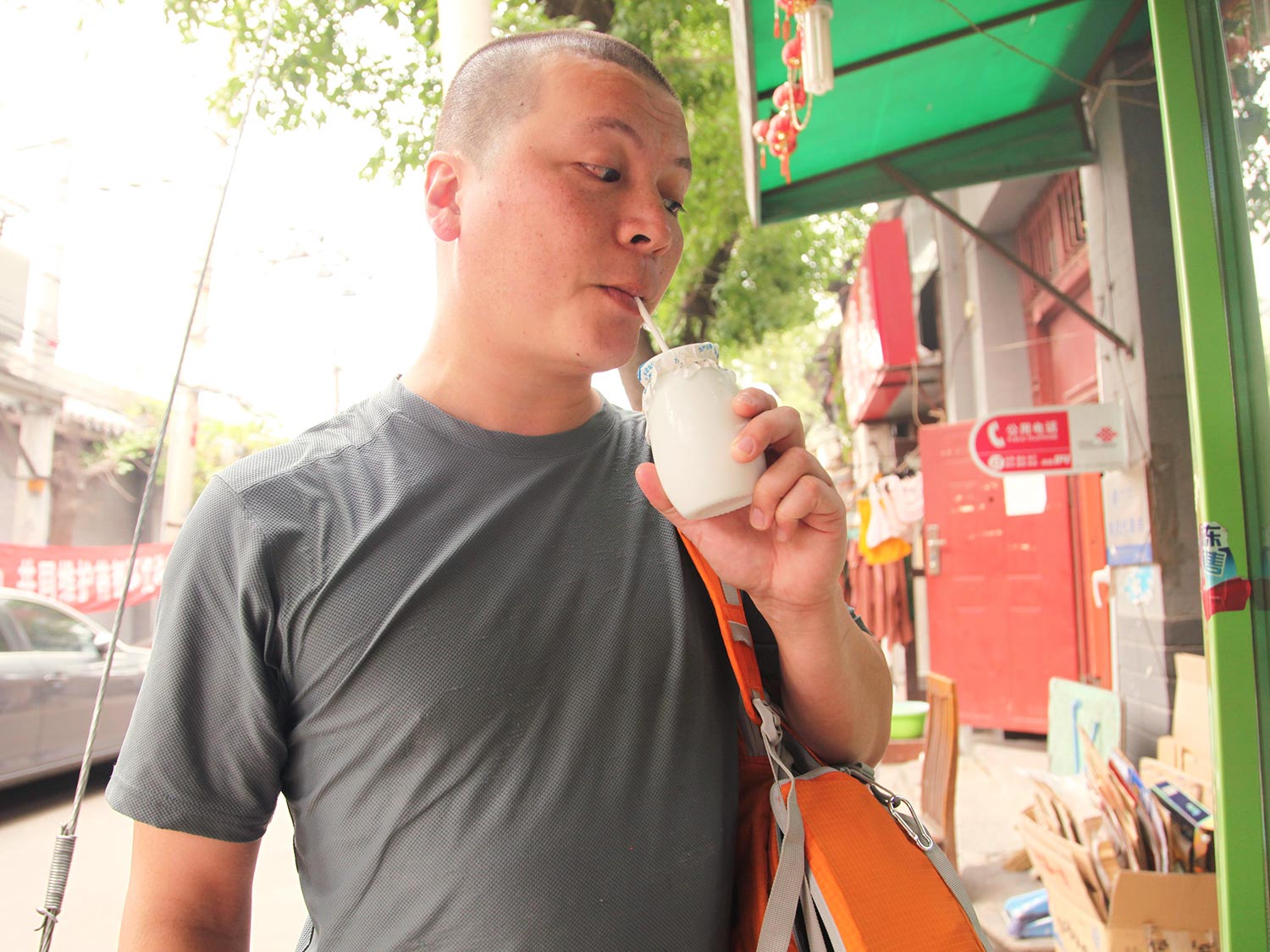
To help the situation, I've been sticking to a rigorous self-prescribed formula of pro-biotics, taken in the form of these little pots of heavily soured, moderately sweetened yogurt, served at nearly every cold drink kiosk in the city (that's every 20 feet or so).
We bought our yogurt and started walking back to the hostel, when my food radar registered a solid bleep.
What is the disk-shaped object that man is holding in his hands? my eyes said to my brain. I'm not sure, let's ask the nose, he responded.
Smells faintly of cilantro, with perhaps a hint of braised pork and soy sauce, said my nose to both of them.
At that point, as often happens, my feet took charge of the rest of my body and turned us in the direction that the man had just come from. It was all I could do to tell my mouth to call after Adri and tell her I was being involuntarily led away.
The source of the food was a small window a half block down, with a queue of three people and one dog in front of us. I peered into the small window and liked what I saw.
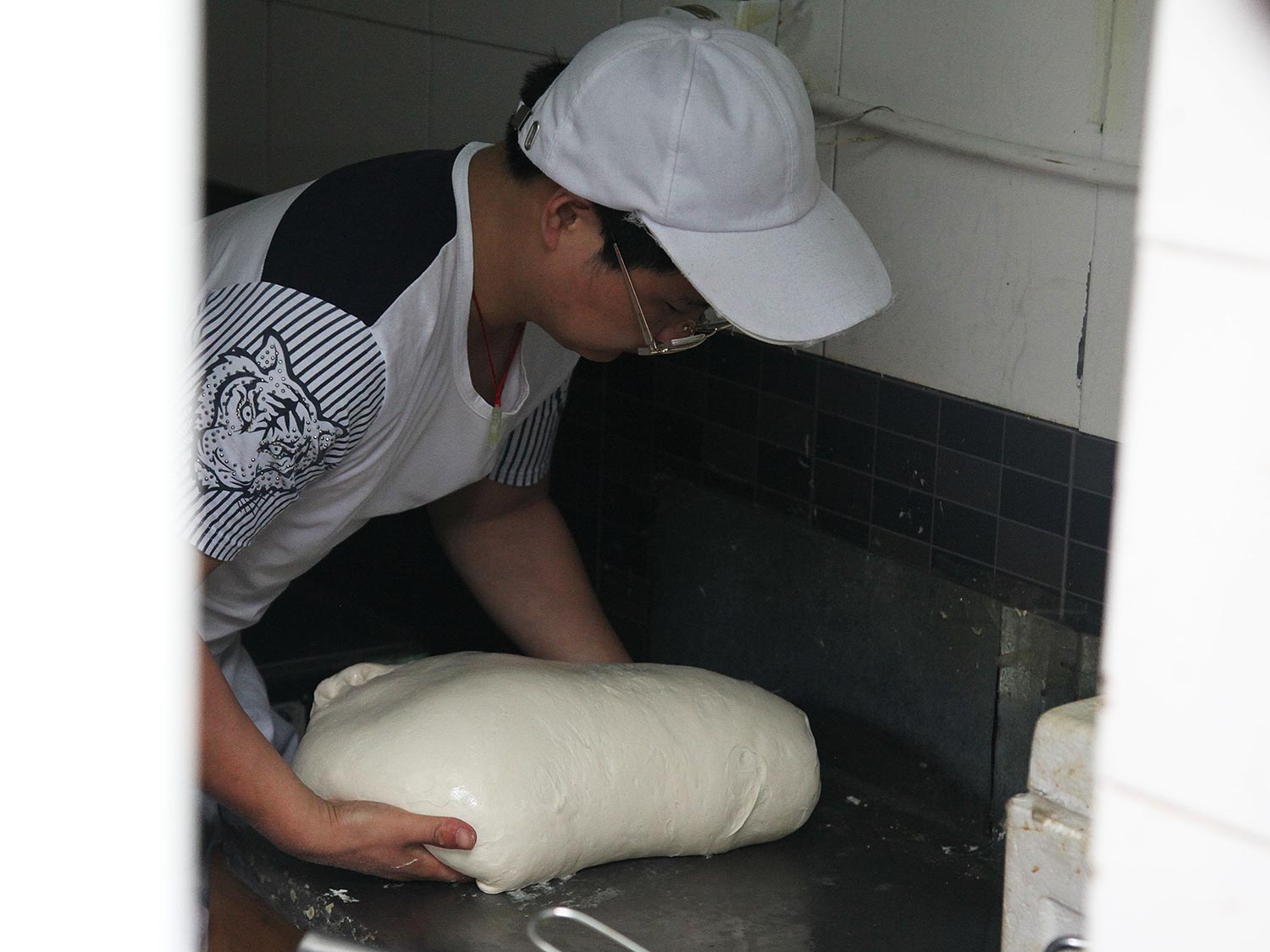
See, this was a rou jia bing shop. Bing is the chinese word for all sorts of dough-based products. When they're flat and crepe-shaped, they're called jian bing (and you can read about the awesome ones I had yesterday). When they're thin, stretchy, and pliant like a tortilla, they're called bo bing (you've probably eaten them wrapped around moo shu pork or Peking Duck). When it's a disk-shaped, lightly leavened dough that's split and stuffed with meat, it's called rou jia bing.
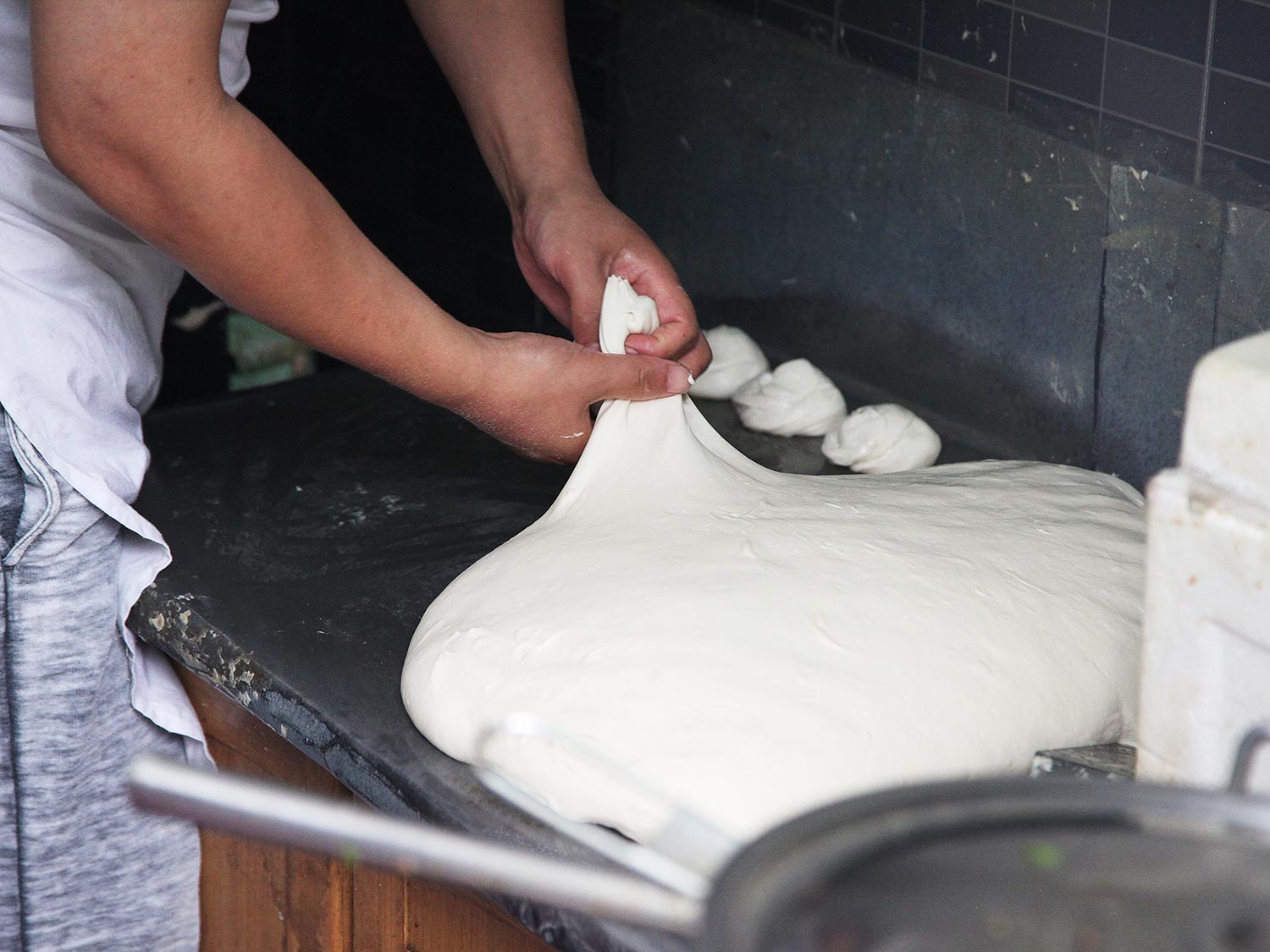
We watched as our man ripped off individual balls of dough after kneading the large mass on an oiled surface for several minutes. Eventually, each ball of dough got stretched and twisted around like a coiled snake before being placed into a cooker that simultaneously steamed it while griddling the top and bottom.
The result is a flat disk that in many way resembles a Venezuelan-style arepa, but with a much lighter, fluffier inner texture.
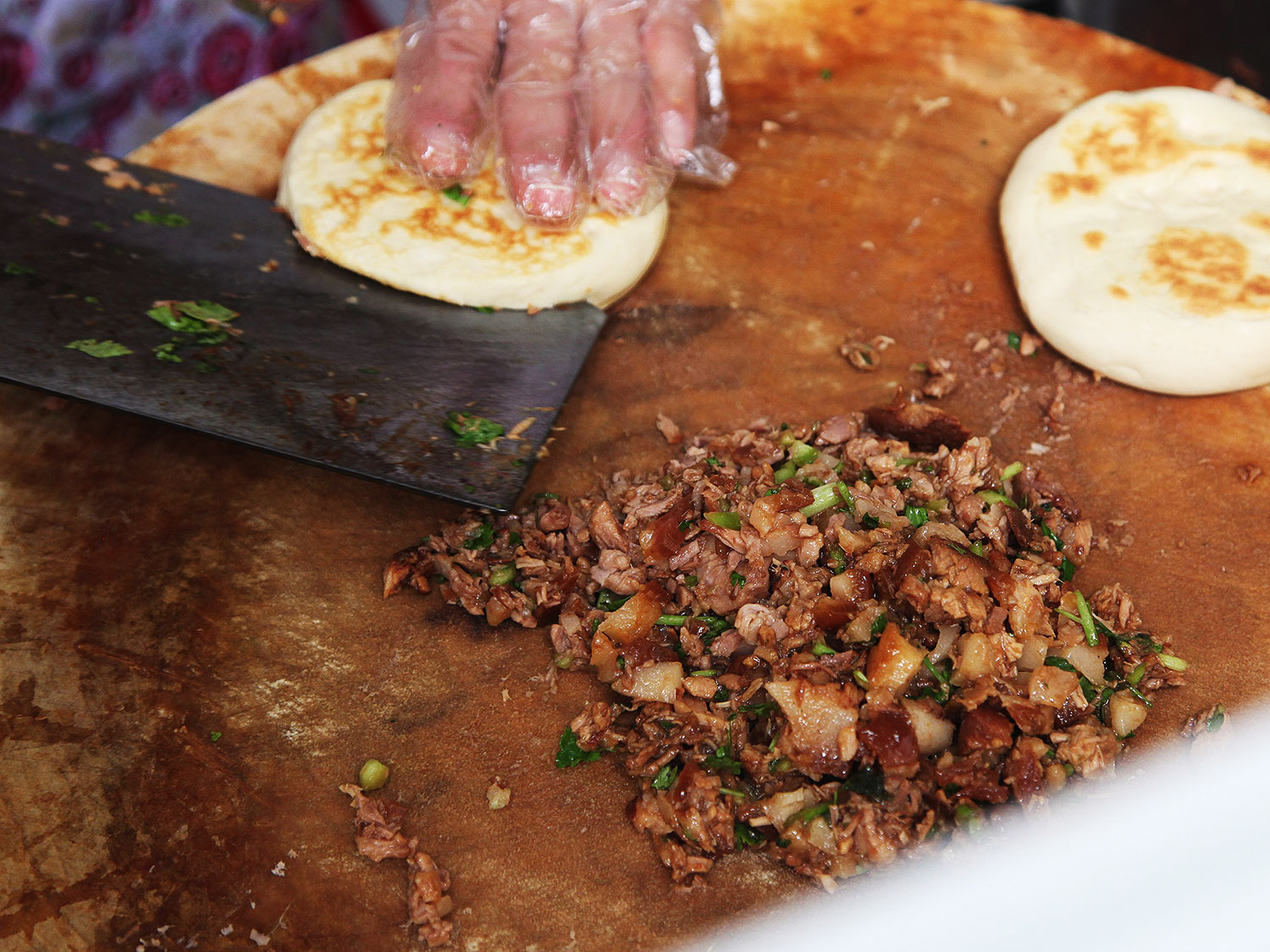
While the dough-man made the bing, the woman up front fished out large chunks of braised pork from a vat of stewing liquid. I'd seen the woman in front of me ask for a particularly fatty bit of belly, and after some emphatic pointing, I managed to score the same.
The pork was braised in a sweet and savory broth that to me tasted of soy, Chinese wine, and sugar, along with a couple of warm spices—star anise, cinnamon, and Sichuan peppercorn, perhaps a couple of others.
She placed the chunks on a large chopping block, tossed a handful of cilantro and cooked hot green horn peppers on top, then chopped it all together with a cleaver.
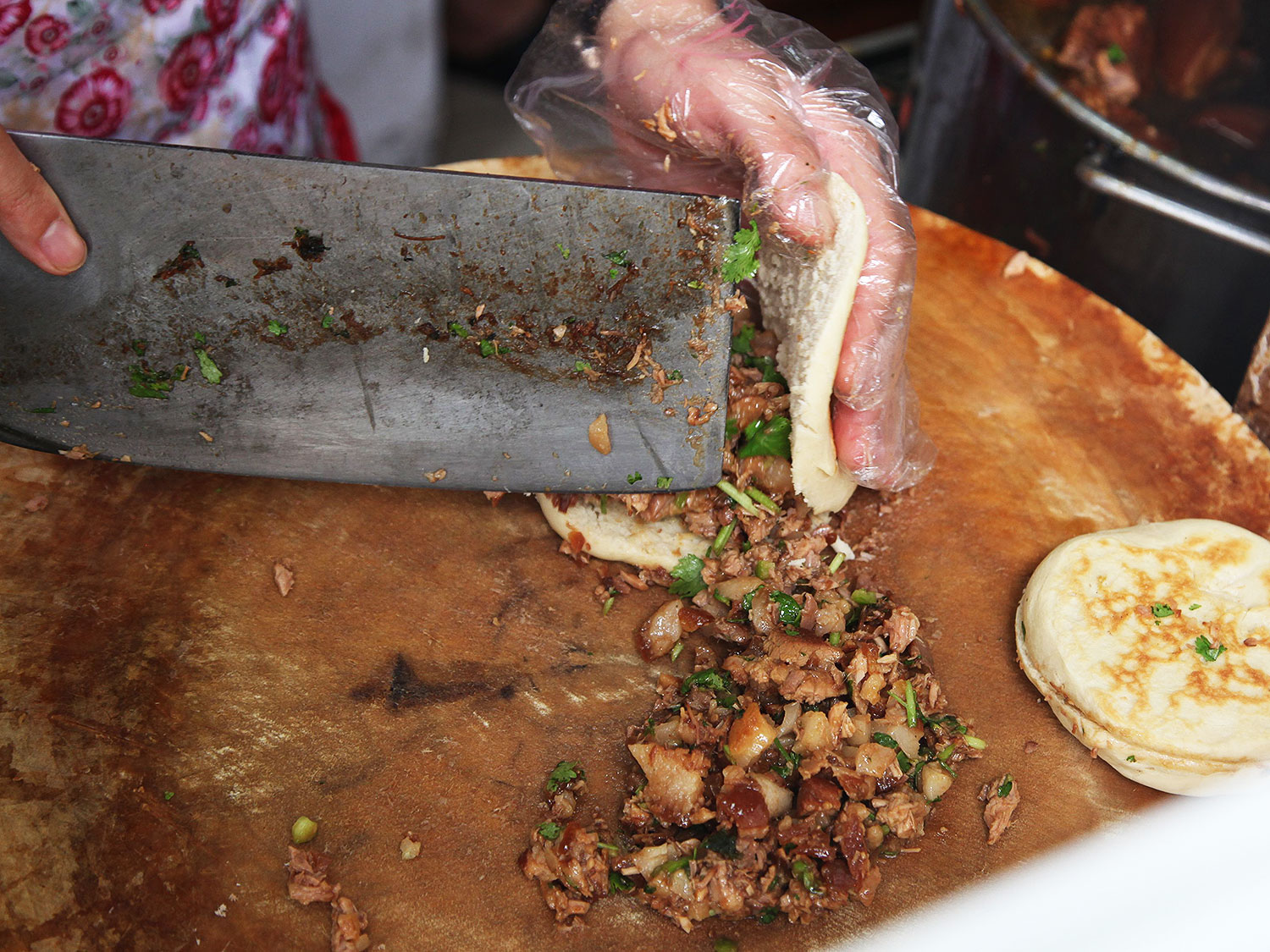
She then split the bun and piled the mixture inside before wrapping it up, drizzling it with a bit more cooking liquid, and handing it to us.

Not too shabby for a 10AM meal. There's an awful lot going on in there, though the predominant flavors are sweet, savory, and fatty, with just a touch of heat and freshness from the cilantro and chilies. But it was the bread that stole the show. Nicely crisp on the outside, tender, hot, and moist, with just a bit of stretch on the interior.
It's a dish that's actually far more common in Xi'an (if you live in NY, you may have seen a version sold as "Chinese Hamburgers" on the menu at Xi'an Famous Foods), but as we all know, the freshness of bread can make or break a sandwich, and seeing as we saw this particular bun being kneaded, shaped, and steam-griddles right in front of our faces, it doesn't get any better than this.
It also happened to ave a higher ratio of cilantro and peppers mixed into the filling, as well as more filling within the bun than any version we've tried since coming to Xi'an, where they're EVERYWHERE.
A bowl of liangpi noodles—hand-cut steamed wheat starch noodles tossed with cucumbers, sesame sauce, and chili oil—and a pork-filled bing is the burger and fries of Xi'an, if a burger and fries were something you ate morning, noon, and night.
Ironically, the best liangpi we've had in China so far were also in Beijing, on that same afternoon, in fact.
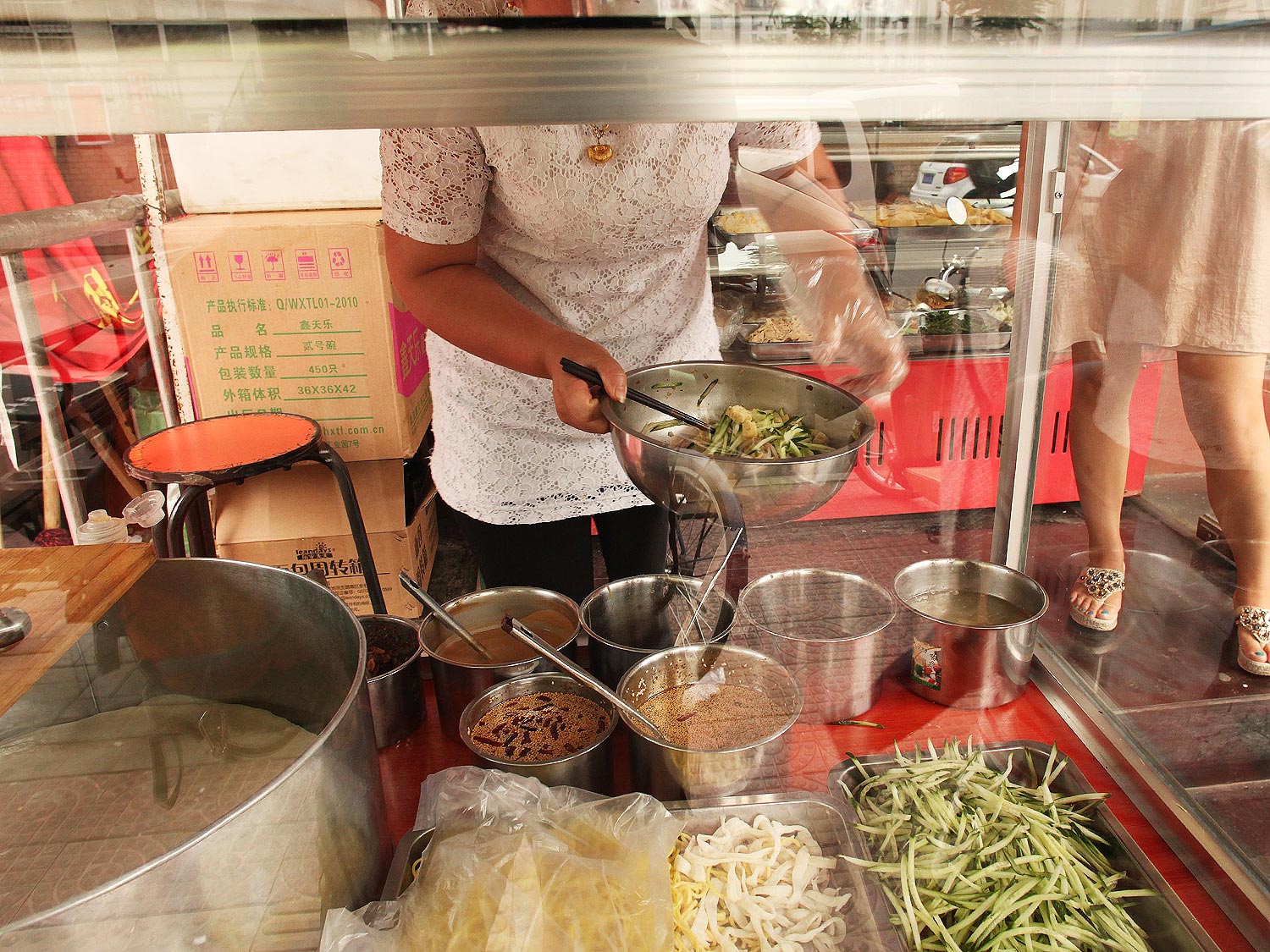
We bought them off a street vendor. The woman, who was dressed in heels and a very un-workmanlike knit top, folded a large, circular sheet of steamed starch like a business letter on top of a bamboo chopping block, then sliced it into half-inch strips with a heavy cleaver before adding them to a bowl and tossing them with blanched mung bean sprouts, shredded cucumber, a ladleful of sesame paste, some soy sauce and vinegar, and a good amount of chili oil.
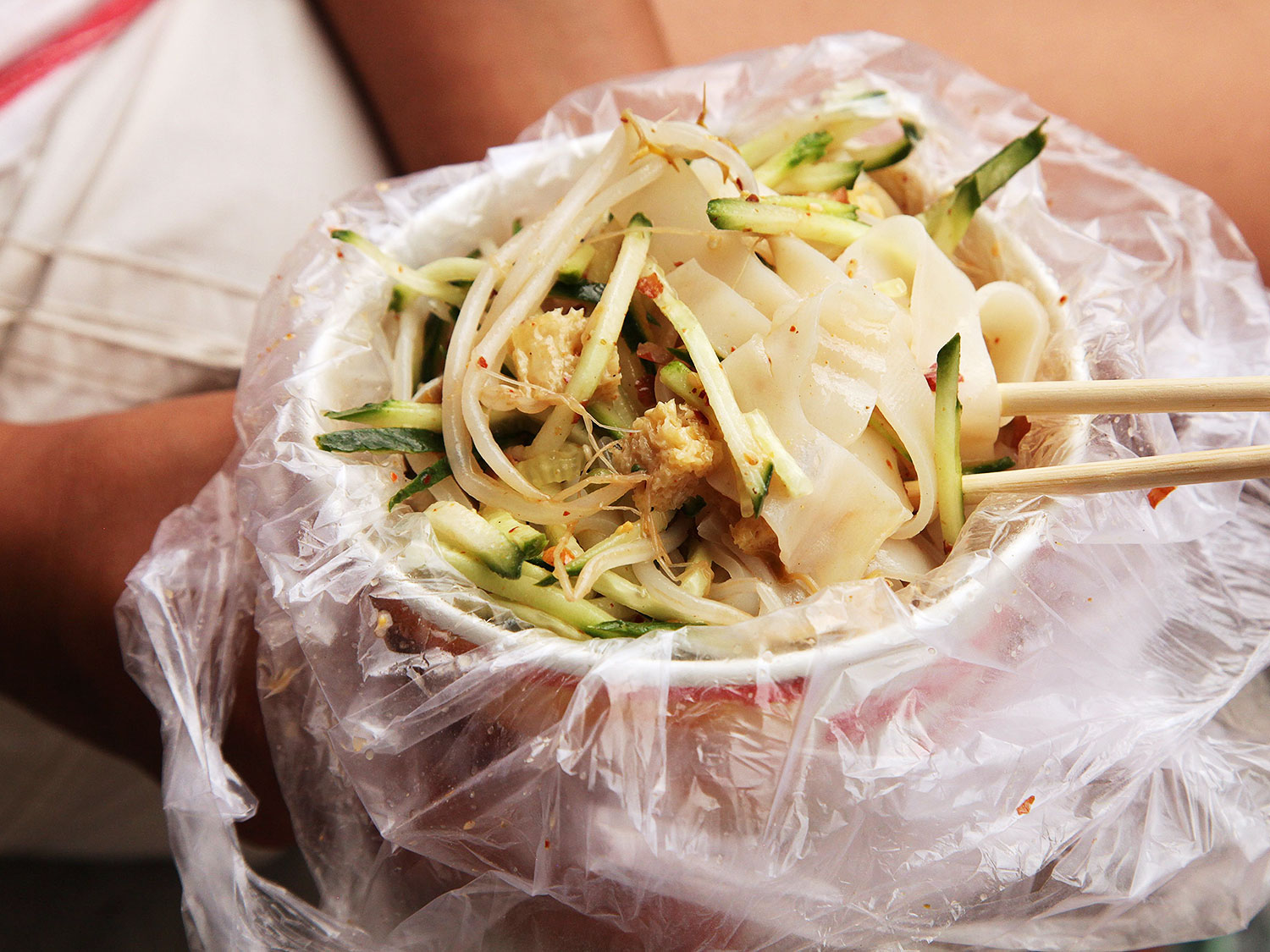
Are those croutons?, asked Adri, talking about the cubes of spongy-looking staff that sure as heck looked like croutons. But nope, they're cubes of super-absorbent once-frozen tofu. Perfect sauce-soppers, if you ask me.
Let me leave you with a picture of how hot and humid it is here:

And a picture of Adri with Glorious Leader:
